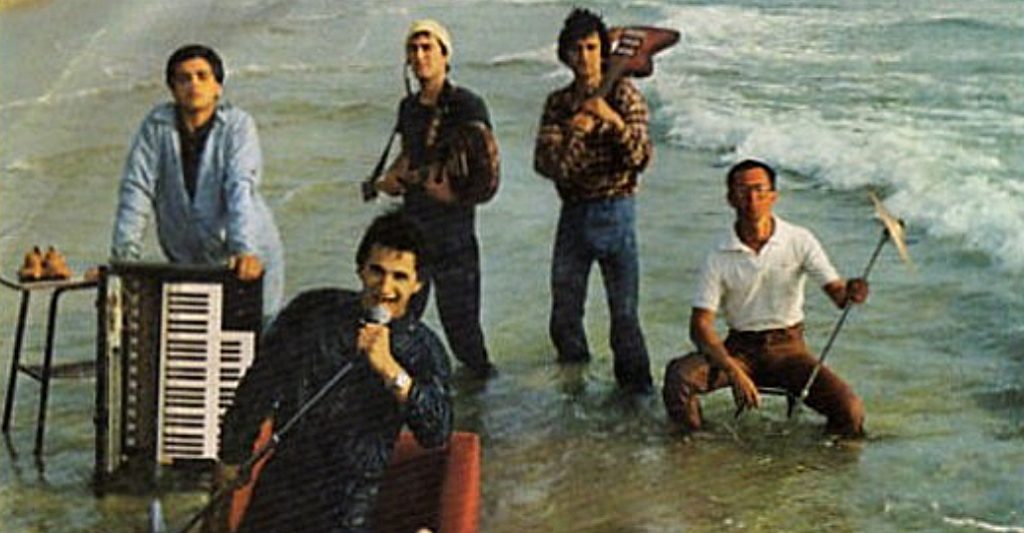Iodo were one of the ephemeral cases of what became known as the “boom” of Portuguese Rock in the 80s. It all started with Rui Veloso’s “Chico Fininho” which opened the door to many groups who didn’t want to miss out on the opportunity . Record labels took advantage (and well) of the phenomenon, abandoning it when they realized that it was no longer commercially successful.
Formed in Casal do Marco (Almada), Iodo began working in music shortly after Rui Veloso’s success. They were formed by Rui Madeira (vocals), Jorge Trindade (guitars), António “Topé” Pedro (bass), Alfredo Antunes (drums) and Luís Cabral (keys).
With a very “new wave” sound, where the keys had great predominance, they set out to conquer their place in the sun.
They easily obtained a record contract with Vadeca (a subsidiary of Valentim de Carvalho) and released their first record in 1981, the single “Malta à Porta”, which quickly became one of the biggest songs of the moment. On side two was the theme “Those Days”. On the cover there was a photograph of the band in the sea, playing their instruments.
(They play as guests at Só Rock in Coimbra and perform the first part of the Iggy Pop concert in Cascais.)
“Malta à Porta” was in first place in the Top of the radio program “Rock Em Stock”, conducted by Luís Filipe Barros. He also achieved the feat of being at the Top of the program “Todos no Top” (TNT) on Rádio Comercial for 19 weeks.
From here they start playing all over the country. They join UHF, NZZN and Xutos & Pontapés and form the management company GRR (Grupos Rock Reunidos), in order to be better defended against some unscrupulous music businessmen.
They release a new single entitled “A Canção”, with the B side being occupied by “Pedro e o Lobo”. This new record work no longer achieves the expected success, despite having managed to enter the Top of the TNT program, but it did not stay there for long.
The band changes formation and, in the places of António Pedro and Alfredo Antunes, José Luís Barros and Raul Alcobia enter, respectively. With this new “line-up” they recorded the album “Manicómio” which turned out to be a commercial failure. Specialized critics also didn’t like the album very much and ignored it.
Some of the songs that were part of the album were: “Ceby (Boneca de Cera)”, “Lendas”, “Foz de Um Beijo”, “As Novas das Tesouras Velhas”, “Ventos do Além”, “Expiração de Um Louco” and “Deixo-me Ir?”. After recording and editing the album and as there was almost no success, the band decided to end its activities, with each of its members pursuing other professions.
Of the great wave that emerged with the “boom” started by Rui Veloso (when there were hundreds of bands recording and publishing albums), only UHF, GNR and Xutos & Pontapés, all contemporary groups of Iodo, managed to survive in the adventure of making Portuguese Rock .
ARISTIDES DUARTE / NOVA GUARDA
DISCOGRAPHY
Malta à Porta/Aqueles Dias (Single, Vadeca, 1981)
A Canção/Pedro e o Lobo (Single, Vadeca, 1981)
Manicómio (LP, Vadeca, 1982)






Thanks for this informative article. Very advanced and interesting info about the group. Keep up the good work.
Thanks for the good writeup. It actually used to be a amusement account it.
Look advanced to more introduced agreeable from you!
However, how could we communicate?
You can communicate here